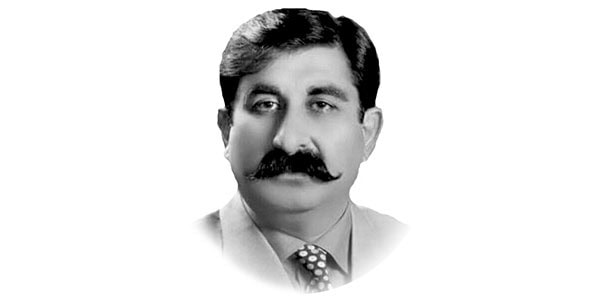Our troublesome bureaucracy
BUREAUCRACY is said to be the integral component of the government. The entire functions of the government and the state are run with the help of these state functionaries.
Only compliant, capable, honest and dedicated functionaries successfully strengthen the state and smoothly run it’s day to day affairs.
Bureaucrats are believed to be civil servants but they factually seldom become civil servants.
Pakistan’s bureaucracy is seen non-cooperative and non-empathetic with the masses. For powerful it works like anything.
Colonial mentalities and power-hungry tendencies are inextricably woven within the system.
Historical and socio-economic constraints notwithstanding, Pakistan’s bureaucracy lacks the capacity, the compassion, the freedom and the willpower to maintain collective social good.
There is a great interpersonal dichotomy and trust deficit between national bureaucracy and the masses.
This divide hampers service delivery to all and sundry. Recruitment lacunas, political appointments, superiority complex, lack of training and influenced postings and transfers are some of the reasons behind the bureaucracy’s dwarfed performance.
Pakistan’s colonial and power hungry bureaucracy has been a great contributor to this degenerative national plight.
Such government’s own machinery is main obstacle in the way of the country’s progress and nobody has yet been able to do anything about it.
Efforts to reform bureaucracy rely on input from the institution itself. Even the senior-most officers from the civil service of Pakistan prefer to sabotage any chance of change so that they and their colleagues could sit comfortably in their positions of power.
With bleak exceptions the civil service of Pakistan has become increasingly corrupt. Things have come to the point that on top of multiple, needless layers of official procedure for getting anything started, especially businesses, greasing palms for necessary approvals and certificates have become almost an official requirement as well.
Such things are bad enough in isolation, but when you have to move in tandem with far more efficient partners, as in the case of CPEC it is only a matter of time before they come up in official exchanges; as has been happening now.
The IMF has identified incompetence of our bureaucracy as a major hurdle to investment in Pakistan.
Successive governments have vowed to sort out this problem making the most noise about it when in power.
Being the ultimate executive authority mandated with implementing legislations, the bureaucracy is central towards establishing a welfare state.
Since they are the ones meant to ensure service delivery to the masses at the grass-roots level, a compassionate, pragmatic, unfettered and humane bureaucracy and public service system is essential for a welfare system to operate effectively.
The concept of a welfare state enshrines public welfare and well-being as central to the governance and administrative mechanisms of a country.
The government is responsible and accountable for the socio-economic welfare of individuals and citizens.
The objective of a welfare state is immaterial without a compassionate, disciplined and accountable bureaucracy.
The large segment of the country’s corrupt bureaucracy is partial to the favours of the rich and powerful who wish to enjoy impunity and an unbridled power grasp.
The ‘public servant’ appears to be a misnomer as officials barely behave like one.
I personally have observed that on the first days of being posted, most of the officers pay homage to the influentials of the area in order to please and appease them.
Their training is where they are almost taught to be arrogant and superhuman. They are brain washed into thinking that the more they are beyond access, the more they are revered and the more their powers multiply.
‘Elite’ is the term they like to be identified with. This superiority complex is manifested in the fact that a large section of the bureaucracy behaves no differently than autocracies in their respective realms.
Indifference, apathy and incapacity are the defining features of most of the bureaucratic strata when it comes to the hapless poor and the destitute part of the society.
It is commonly observed norm in Pakistan that most of the bureaucrats are beyond access to the poor and the destitute.
Commoners are left waiting for weeks and months just to voice out their genuine grievances.
For feudals, media persons or local influentials, the doors of the offices are wide open regardless of the office hours.
From the peon to the higher authorities of public and government organisations, no official is ready to carry out any work without a bribe.
Hunger for power reigns supreme in the hearts and minds of most of the civil servants and bureaucrats.
Most of those that have made it into the bureaucratic sphere through fair or foul means have only two objectives in minds: to hold as much power and to amass as many riches as they possibly can.
Serving the masses, particularly the underprivileged, exists nowhere in their agenda.
Pakistan’s slide in the corruption perceptions index and the seizure of millions worth of gold, cash and kind by NAB are a few instances of unbridled practices of corruption unleashed by large sections of the bureaucracy.
Personal whims, wishes and interests of the patrons-in-chief reign supreme and supersede official provisions and rulings.
The country needs a humane, compassionate and generous bureaucracy that sincerely believes that public good must be above all else.
Otherwise, a welfare state would continue to remain a distant dream. Pakistan’s colonial and power hunger bureaucracy has been a great contributor to this degenerative national plight.
Unfortunately, our bureaucracy feels that it’s duty to the feudal lords and patrons is more important and meaningful than it’s relationship with the masses.
—The writer is editor, book ambassador political analyst and author of several books based in Islamabad.










